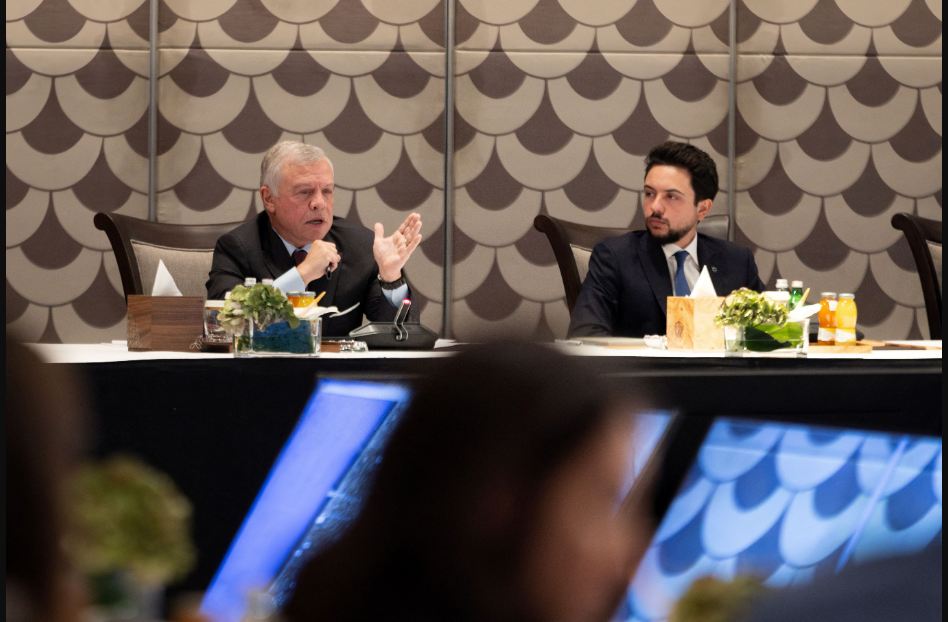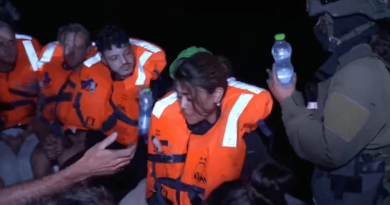Jordan’s king calls on Israel to allow more aid into Gaza
Amman/Rafah (Reuters) – Jordan’s King Abdullah on Thursday urged U.N. aid officials and international groups to pile pressure on Israel to allow more aid into the beleaguered Gaza enclave where the humanitarian situation is worsening, officials and aid workers said.
They said the monarch told an emergency meeting in Amman of U.N. officials, heads of Western non-governmental organisations and representatives of Arab donors it was unacceptable that Israel continued to hold back sufficient aid flows.
“The monarch urged the international aid community to do their bit and save Gazans who have endured a brutal war that has turned their land into an unliveable place,” said one delegate who requested anonymity since deliberations were taking place confidentially as requested by the royal palace organisers.
A temporary truce between Israel and Hamas built around hostage and prisoner releases has allowed substantially more aid into the densely populated territory of 2.3 million people in the past six days. But deliveries of relief including food, water, medical supplies and fuel remain far below what is needed, aid workers say.
“People in Gaza need a sustained ceasefire now. It is the only way to stop indiscriminate killings and civilian injuries and allow for the delivery of desperately needed humanitarian aid on a meaningful scale,” Medecins Sans Frontieres (MSF) international president Christos Christou said.
“We are already witnessing a humanitarian crisis of catastrophic proportions and it will get worse if the violent onslaught resumes,” he told reporters in Amman.
With Israel refusing to allow any aid in through its borders, supplies have been flown and driven into Egypt’s Sinai Peninsula for delivery to Gaza through the Rafah crossing.
Red Crescent workers unloaded and sorted the latest deliveries of aid at Al Arish airport in northern Sinai on Thursday. A Reuters reporter saw long lines of container and flat bed trucks queued up on the side of the road to Rafah.
Israel has bombarded Gaza in response to an Oct. 7 rampage into southern Israel by Hamas militants who killed some 1,200 people and took more than 200 hostage.
Gaza health authorities say more than 15,000 people have been confirmed killed in Israel’s attack, about 40% of them children, with many more feared dead and lost under rubble.
The Israel-Gaza border is inoperable following the Oct. 7 attack from Gaza, an Israeli official said. Israel had previously called for increasing the amount of aid taken into Gaza from Egypt, including shipments provided by Jordan, said the official, who requested anonymity.
Border Blockage
U.N. aid chief Martin Griffiths and senior UNRWA officials attending the Amman conference told delegates it was crucial Israel reopens the Kerem Shalom border crossing that before the war handled more than 60% of the truckloads going into Gaza.
Bottlenecks and capacity limitations at the Rafah crossing mean it cannot handle more than 200 trucks a day.
“Before the war Gaza used to receive 500 trucks every day. We have never come close to that figure since October 7,” said UNRWA director of communications Juliette Touma, the U.N. aid agency providing aid to Palestinians.
Trucks carrying aid through Rafah have to first go through Israeli inspections at the crossing between Nitzana in Israel and Al-Awja in Egypt, to ensure that only limited supplies of fuel are allowed and prevent what they term dual usage goods from entering.
Israel’s control of the amounts and type of goods entering Gaza has curtailed the aid effort, and its acceptance of only limited supplies of fuel was hampering the health system’s recovery, according to health and aid workers.
Truck drivers on the Egyptian side of the border said they sometimes faced days-long waits at the Nitzana crossing before inspections were completed.
NGOs and U.N. officials also heard appeals from the monarch to accelerate delivery of aid in Gaza’s north, where the United Nations says access remains limited and most water production plants remain shut due to lack of fuel.



